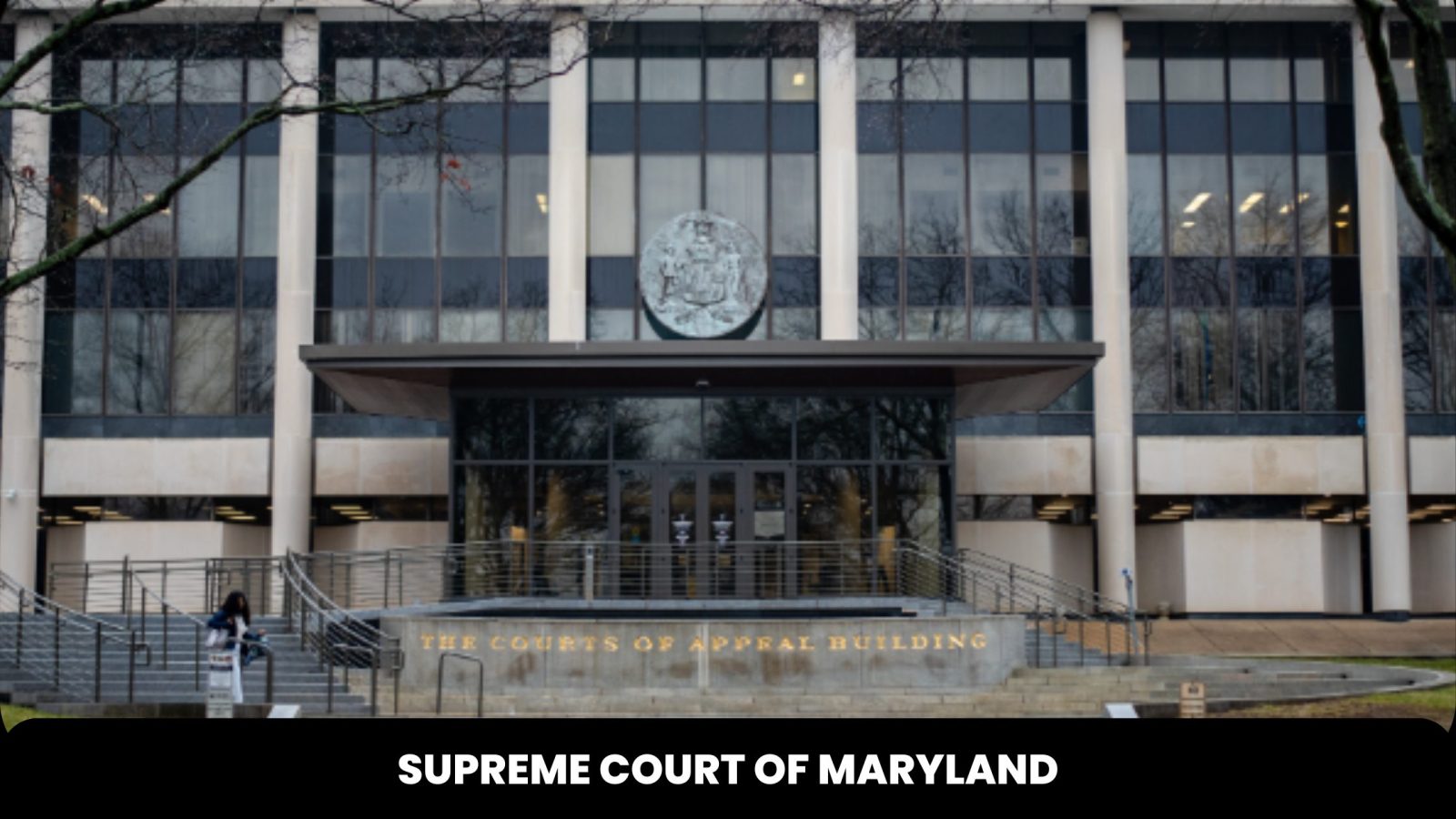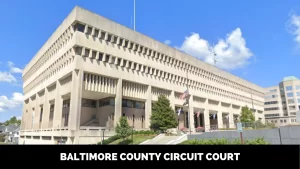Supreme Court of Maryland
Introduction to Supreme Court of Maryland
The Supreme Court of Maryland is the highest court of the state of Maryland in the United States of America. The supreme court is the final appellate court in Maryland and has the power to make binding decisions on a wide range of legal issues.
Definition of Supreme Court of Maryland
The Supreme Court of Maryland is the highest court in the state of Maryland with the power to make final decisions on legal matters. The court has the power to hear appeals from lower courts and to make binding decisions on a wide range of legal issues.
Historical background of Supreme Court of Maryland
The Supreme Court of Maryland was established in 1779, making it one of the oldest supreme courts in the United States. Throughout its history, the court has played a significant role in shaping the legal landscape of Maryland and the country as a whole. Some of the most famous cases in the history of the United States were heard by the Supreme Court of Maryland, including Marbury v. Madison, Brown v. Maryland, and State v. Wilkes.
Composition and Structure of Supreme Court of Maryland
The Supreme Court of Maryland is composed of seven judges, including a Chief Judge. The judges are appointed by the Governor of Maryland and are subject to confirmation by the Maryland Senate.
Number of Judges in Supreme Court of Maryland
The Supreme Court of Maryland is composed of seven judges, including a Chief Judge.
Chief Judge of Supreme Court of Maryland
The Chief Judge of the Supreme Court of Maryland is the highest-ranking judge on the court and is responsible for overseeing its operations and administration.
Selection process of Judges in Supreme Court of Maryland
Judges of the Supreme Court of Maryland are appointed by the Governor of Maryland and are subject to confirmation by the Maryland Senate. The selection process is designed to ensure that only highly qualified individuals are appointed to the court.
Roles and Responsibilities of Supreme Court of Maryland
The Supreme Court of Maryland has a number of important roles and responsibilities, including the jurisdiction to hear appeals and the power to make binding decisions on a wide range of legal issues.
Jurisdiction of Supreme Court of Maryland
The Supreme Court of Maryland has jurisdiction to hear appeals from lower courts in the state of Maryland. This includes appeals from both civil and criminal cases.
Appellate jurisdiction of Supreme Court of Maryland
The appellate jurisdiction of the Supreme Court of Maryland allows it to hear appeals from decisions made by lower courts in the state. The court has the power to review the decisions made by these lower courts and make a final determination on the matter at hand.
Administrative responsibilities of Supreme Court of Maryland
In addition to its judicial responsibilities, the Supreme Court of Maryland also has administrative responsibilities. The court is responsible for overseeing the operations of the judicial system in the state and for ensuring that it runs smoothly and efficiently.
Functioning and Proceedings of Supreme Court of Maryland
The Supreme Court of Maryland operates in a manner similar to other supreme courts in the United States. The court hears arguments and makes decisions on a wide range of legal issues.
Court sessions and schedule
The Supreme Court of Maryland holds regular court sessions throughout the year. The court typically sits for several weeks at a time, during which it hears arguments and makes decisions on the cases before it.
Arguments and Briefs
During court sessions, the Supreme Court of Maryland hears arguments from both sides of a case. The court also reviews written briefs submitted by the parties involved in the case. These briefs provide the court with additional information and help it to make a well-informed decision.
Opinions and Decisions
After hearing arguments and reviewing written briefs, the Supreme Court of Maryland makes a decision on the case at hand. The court’s decision is known as an opinion, which is a written explanation of the court’s reasoning and the basis for its decision.
Significance and Impact of Supreme Court of Maryland
The Supreme Court of Maryland has played a significant role in the history of Maryland and the United States as a whole. The court has made important decisions on a wide range of legal issues and has helped to shape the legal landscape of the state and the country.
Historical significance of Supreme Court of Maryland
Throughout its history, the Supreme Court of Maryland has played an important role in shaping the legal landscape of the state and the country. The court has heard many famous cases, including Marbury v. Madison, Brown v. Maryland, and State v. Wilkes. These cases have helped to define the limits of government power and have had a lasting impact on the legal system in the United States.
Contemporary significance of Supreme Court of Maryland
The Supreme Court of Maryland continues to play an important role in the legal system of the state and the country. The court is responsible for making final decisions on a wide range of legal issues, including cases involving civil rights, criminal law, and other important areas of the law.
Impact on legal system of Maryland
The decisions made by the Supreme Court of Maryland have a significant impact on the legal system in the state of Maryland. The court’s decisions help to define the limits of government power and shape the way that the law is applied in the state.
Famous Cases of Supreme Court of Maryland
Throughout its history, the Supreme Court of Maryland has heard many famous cases that have had a lasting impact on the legal landscape of the state and the country.
Marbury v. Madison
Marbury v. Madison was a landmark case heard by the Supreme Court of Maryland in 1803. The case involved a dispute over the appointment of a federal judge and helped to establish the principle of judicial review in the United States.
Brown v. Maryland
Brown v. Maryland was a case heard by the Supreme Court of Maryland in 1827. The case involved a challenge to a Maryland law that required all merchants to purchase a license to sell goods in the state. The court’s decision helped to establish the principle of free trade in the United States.
State v. Wilkes
State v. Wilkes was a case heard by the Supreme Court of Maryland in 1798. The case involved a challenge to a law that allowed for the arrest and detention of individuals who were suspected of being involved in seditious activities. The court’s decision helped to establish the limits of government power and the rights of individuals in the United States.
Supreme Court of Maryland Address
The Supreme Court of Maryland is located at Robert C. Murphy Courts of Appeal Building, 361 Rowe Boulevard, Annapolis, MD 21401.
Maryland Supreme Court Case Search
Individuals who are interested in searching for cases heard by the Supreme Court of Maryland can do so by visiting the court’s website or by visiting the Clerk of the Court’s office in Annapolis. The court’s website provides access to a database of all cases heard by the court, including information about the parties involved, the date of the hearing, and the outcome of the case.
Supreme Court of Maryland Name Change
The Supreme Court of Maryland has not changed its name since it was established in 1779.
Maryland Supreme Court Justices
The Supreme Court of Maryland is composed of seven judges, including a Chief Judge. The judges are appointed by the Governor of Maryland and are subject to confirmation by the Maryland Senate.
Maryland Supreme Court Opinions
The Supreme Court of Maryland issues opinions in all cases that it hears. These opinions are written explanations of the court’s reasoning and the basis for its decision. The opinions of the Supreme Court of Maryland are considered to be binding and have a significant impact on the legal landscape of the state and the country. Individuals who are interested in reading the opinions of the Supreme Court of Maryland can do so by visiting the court’s website or by visiting the Clerk of the Court’s office in Annapolis.
Conclusion
The Supreme Court of Maryland is an important institution in the state of Maryland and the United States as a whole. The court has a rich history and has played a significant role in shaping the legal landscape of the state and the country. The court continues to play an important role in the legal system of Maryland, making final decisions on a wide range of legal issues and helping to shape the way that the law is applied in the state.
FAQs
What is the Supreme Court of Maryland?
The Supreme Court of Maryland is the highest court of the state of Maryland in the United States. The court has the power to make final decisions on a wide range of legal issues and has a rich history of shaping the legal landscape of the state and the country.
Who are the judges of the Supreme Court of Maryland?
The Supreme Court of Maryland is composed of seven judges, including a Chief Judge. The judges are appointed by the Governor of Maryland and are subject to confirmation by the Maryland Senate.
What is the role of the Supreme Court of Maryland?
The Supreme Court of Maryland has a number of important roles, including the jurisdiction to hear appeals and the power to make binding decisions on a wide range of legal issues. The court also has administrative responsibilities, including overseeing the operations of the judicial system in the state.
How does the Supreme Court of Maryland function?
The Supreme Court of Maryland operates in a manner similar to other supreme courts in the United States. The court hears arguments and makes decisions on a wide range of legal issues during regular court sessions.
What is the significance of the Supreme Court of Maryland?
The Supreme Court of Maryland has played a significant role in the history of Maryland and the United States as a whole. The court has made important decisions on a wide range of legal issues and has helped to shape the legal landscape of the state and the country.








